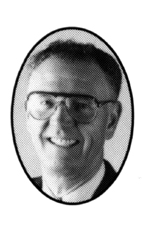Mr. Speaker, Bill C-300 provides for a Canadian peacekeeping service medal to be awarded to Canadians who have participated in peacekeeping, peacemaking, peace enforcement or humanitarian assistance missions which have been sanctioned by the Government of Canada.
In my opinion these would be accurately described under the umbrella term international stabilization missions. They do not always have identified direct connection or impact on Canada but Canadians, as compassionate citizens of the world and as international traders, recognize the need and propriety of the involvement of Canadians in these places to better the lot or improve the situation for the people who find themselves in these trouble spots.
The Canadians who respond to these calls willingly forego the comfort of home, the companionship of family and the opportunity to train and better their qualifications, to often place themselves in uncomfortable, dangerous situations.
In so doing they have brought great honour and pride to Canada, including the award of the Nobel Peace Prize to those who served the UN prior to September 1988. Some 150 of them have paid the supreme sacrifice and many more carry the wounds and disabilities that resulted from their participation in these activities.
In the past their contributions have sometimes been recognized by the United Nations and other organizations, but until now there has been no way for Canada to provide individual recognition of the honour and pride they have brought to Canada. Today true Canadian recognition for their individual service in the cause of international stabilization, past, present and future, is one step closer to becoming a reality.
Bill C-300 has undergone a metamorphosis, emerging at today's pivotal point after having benefited from incorporating enlightened and thoughtful input from hon. members of the House, from interested Canadians across the country, and from the Canadian Armed Forces. As a result I believe, with the exception of specifically recognizing those who won the Nobel Peace Prize, it now gives Canada the ability to acknowledge those military, constabulary, medical or other Canadians who have given of themselves to help others.
This will only happen if Parliament gives its approval, both this House and the other place, prior to the dissolution of Parliament. If not, all these efforts will have been in vain.
For Bill C-300 to have reached report stage and third reading today is an exemplary display of what can be achieved when members of all parties see the worth of a measure and set out to see it proclaimed into law. I am truly honoured that members of the House have given their consent by special order to move Bill
C-300 quickly up the order of precedence to be debated at report stage and third reading today.
I much appreciate and wish to thank the chief government whip for his support and introduction of the motion making this debate possible. I extend my sincere gratitude to all members of the House for their tremendous support and constructive input both on an individual basis and through debate. Many of the recommendations which they offered have indeed strengthened and enhanced Bill C-300 as they were adopted in committee on March 12 and are now reflected in the bill reported to Parliament yesterday.
The co-operation afforded by members of the House of Commons Standing Committee on National Defence and Veterans Affairs and the ensuing discussions on various aspects of the bill have been most helpful and are gratefully appreciated.
The committee chair, the member for Halifax, and all members are to be commended for their co-operation in moving my bill quickly through committee. I should additionally thank the former committee chairman, the member for Hillsborough, for his contribution and support.
The expert testimony, advice and recommendations received in committee from Major General Dallaire, the chief of staff for the assistant deputy minister of personnel; Major Bev Brown of the directorate of history and heritage, medals and honours; and Major Gallagher, special assistant to the judge advocate general called on as witnesses proved to be invaluable.
The defence department witnesses were able to give us the guidance necessary to ensure that Canadian recognition for peacekeeping service would be appropriately directed. I am most appreciative of their support.
It was at second reading on February 3, 1997 that the Parliamentary Secretary to the Minister of National Defence and Veterans Affairs advised the House that the government would not oppose the bill. Thus I would be remiss if I failed to acknowledge and thank the Minister of National Defence and Veterans Affairs for the courtesy extended to me and the tremendous assistance provided by the minister and his staff, in particular Margaret Penniston.
There is every indication that it will be the will of the House to pass Bill C-300 this evening. The only remaining obstacle will then be approval in the other place. From communications I have had with some members of the other place it would appear there is a good chance that it will pass quickly and thus be in a position to be proclaimed into law before the 35th Parliament is dissolved for an election.
With that I will conclude, leaving the fate of Bill C-300 in the hands of hon. members of the House.

